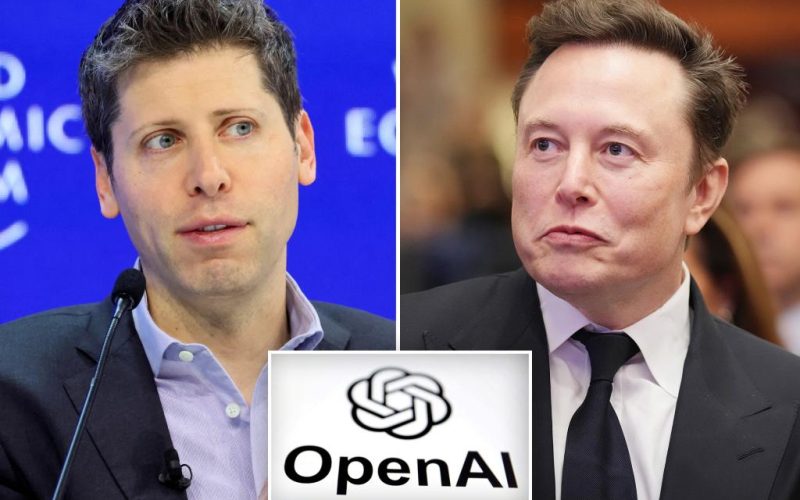Elon Musk has asked a federal judge to block Sam Altman’s OpenAI from completing plans to become a for-profit entity – arguing that it would cause “irreparable harm” to the public.
In the filing late Friday in US District Court in San Francisco, Musk accused Altman of running afoul of antitrust law through the OpenAI’s collaboration with Microsoft, which has poured billions into the ChatGPT maker.
“Plaintiffs and the public need a pause,” the filing says. “OpenAI’s path from a non-profit to a for-profit behemoth is replete with per se anticompetitive practices, flagrant breaches of its charitable mission and rampant self-dealing.”
“It cannot lumber about the marketplace as a Frankenstein, stitched together from whichever corporate forms serve the pecuniary interests of Microsoft and Altman at any given moment,” the filing added.
The demand for a preliminary injunction marked an escalation in Musk’s long-running feud with Altman. The two tech titans once collaborated as co-founders of OpenAI but have since become bitter rivals with competing artificial intelligence projects.
The injunction was filed on behalf of lawyers for Musk, his artificial intelligence startup xAi and former OpenAI board member Shivon Zilis – an executive at the brain chip company Neuralink who is also the mother of three of Musk’s children.
Musk’s legal team zeroed in on OpenAI’s partnership with Microsoft as cause for concern.
“Whatever leeway OpenAI might have been due under antitrust law as a purported charity it chose to forego when it subordinated itself to Microsoft for profit,” the filing said. “OpenAI must therefore play by the same rules as everyone else.”
OpenAI blasted Musk’s latest bid in a statement, calling it “utterly without merit” and accusing him of recycling arguments from previous legal challenges.
Musk was initially one of OpenAI’s key investors, but ended his involvement after falling out with Altman. The X, Tesla and SpaceX boss first filed suit against OpenAI in March, only to withdraw the complaint and refile it in August.
The updated complaint described Musk’s dispute of Altman as a “textbook tale of altruism versus greed.”
Musk accused Altman of deceiving him into forking over more than $44 million to bankroll OpenAI in its early days with a promise of developing safe AI for the benefit of mankind, only to abandon that mission in order to enrich himself and key investors, including Microsoft.
The lawsuit was expanded last month when Musk’s lawyers cited federal antitrust complaints and added Microsoft as a defendant.
Musk has also stepped up his rhetoric against Altman personally, calling him “Swindly Sam” in a recent X post.
Musk’s attempt to block OpenAI’s plans is another wrinkle in what has already been a complicated process for Altman and his allies.
The firm is planning to restructure as a public benefit corporation, in which its leaders would weigh both societal impact and profit when making decisions. Musk’s xAI and Amazon-backed Anthropic use the same structure.
The nonprofit arm that has governed OpenAI since 2015 would continue to exist but it would no longer be in control.
OpenAI’s recent $6.6 billion fundraising round included a stipulation allowing investors such as Josh Kushner’s Thrive Capital to renegotiate the company’s valuation – or even receive their money back entirely – if the shift from non-profit to for-profit isn’t completed within two years.
OpenAI is reportedly pursuing the change in part to insulate Altman from “hostile takeovers” by activist investors or executives – such as the one that briefly led to his firing by a previous version of the company’s board of directors late last year.








